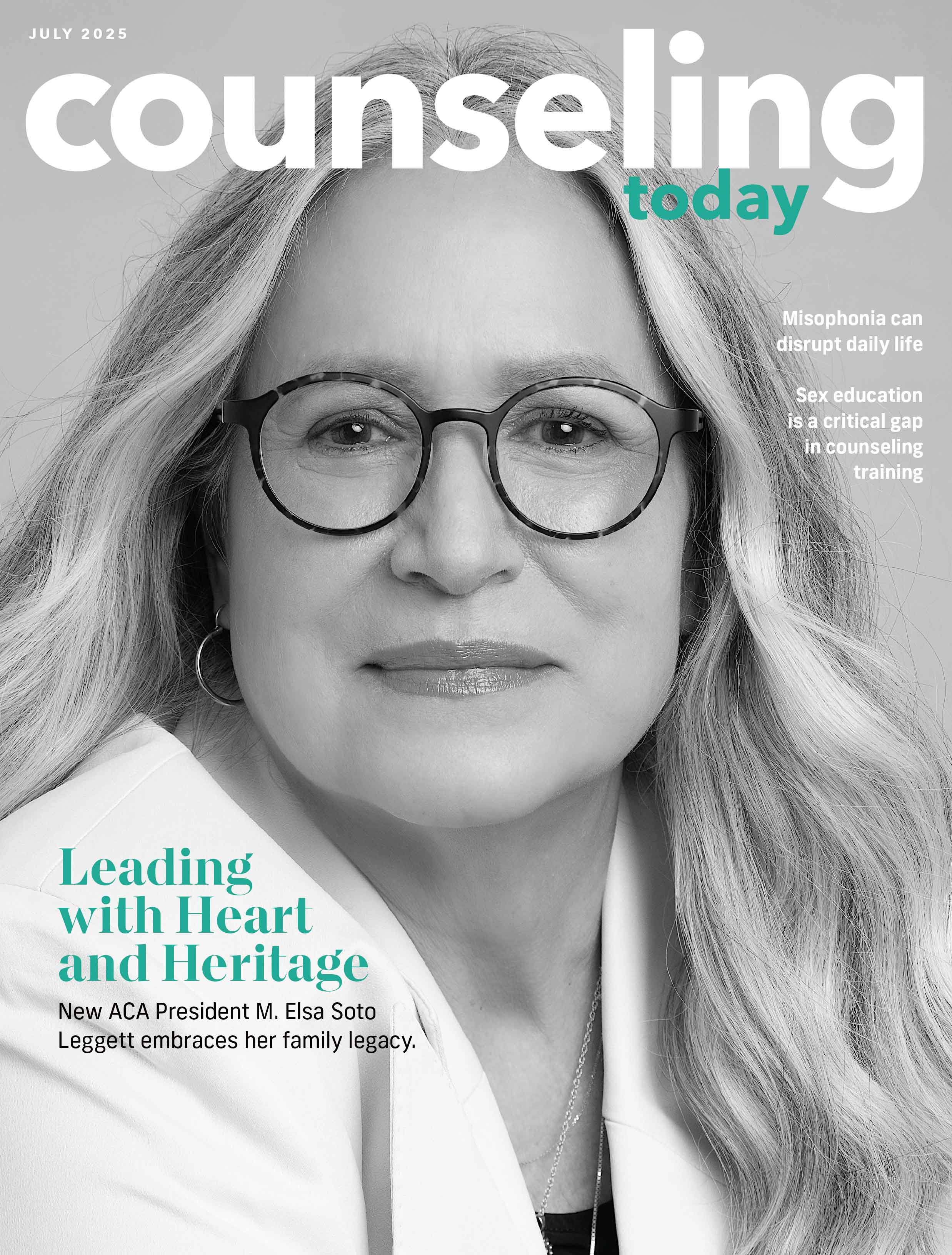Experience First, Doctorate Later?
By ACA Staff
March 2024

Photo Credit: Illustrations by Michael Hoeweler
Every issue we ask a counseling student or new professional to pose a career-related question to another counseling professional who has experience in that topic. This month Patrice Bryan, who graduated with a master’s in counseling psychology from the University of Baltimore, asks Cort Dorn-Medeiros, PhD, LPC, about the benefits of getting clinical experience before starting a doctoral program. Dorn-Medeiros is an associate professor and chair of the Department of Counseling, Therapy and School Psychology at Lewis & Clark College in Portland, Oregon.
Question:
Why did you decide to get a doctoral degree in counselor education after working in the field as a professional counselor?
Answer:
First, there is no one right reason to pursue a doctoral degree. Some say you should only pursue a doctorate if you intend to do research or work in academia. Those reasons are valid and rational. However, some decide to get a doctorate because they enjoy learning and want to gain as much knowledge and specialized training as possible. Some may want a higher-paying job, and others may do it for cultural or familial reasons. So, trust that whatever your reasons are, they, too, are valid.
After graduating with my master’s in counseling degree, I knew I eventually wanted to pursue a doctorate. I enjoyed the research process and working collaboratively with my thesis adviser. I liked everything from brainstorming research questions to interviewing participants and writing the final product. I did not even mind the required statistics class and the extra semester it took to complete my project.
But I also thought it was essential to gain more clinical experience, get my LPC credential and spend some time in the professional world before entering a doctorate program. Being able to pull from “real world” experiences would help me be a better counselor educator to my students and supervisees. I worked for several years as a dual-credentialed LPC and certified alcohol and drug counselor in community- and medical-based settings. This professional experience was invaluable, and I loved my work.
However, I got an itch to do more after a few years. I missed doing research, and I enjoyed the aspects of my clinical job that involved teaching. Running several psychoeducational groups and providing clinical supervision were the highlights of my week. So, I knew I wanted to work in academia because it would allow me to combine what I loved the most: teaching, supervision and research.
Getting my doctorate has opened new doors for me. I was fortunate to get my dream job in academia, where I work with brilliant, creative and inspiring faculty and staff. In this role, I have had the opportunity to travel, get paid speaking engagements, participate in research and writing collaborations across disciplines, and expand my skill set to include grant writing and administrative opportunities. I love that my days are so different and varied. I might spend one day focused on my writing, another teaching and advising, and another in meetings with other faculty or higher administration. Going back to get a doctoral degree after getting some clinical experience was the right decision for me.
Best of luck to you!


